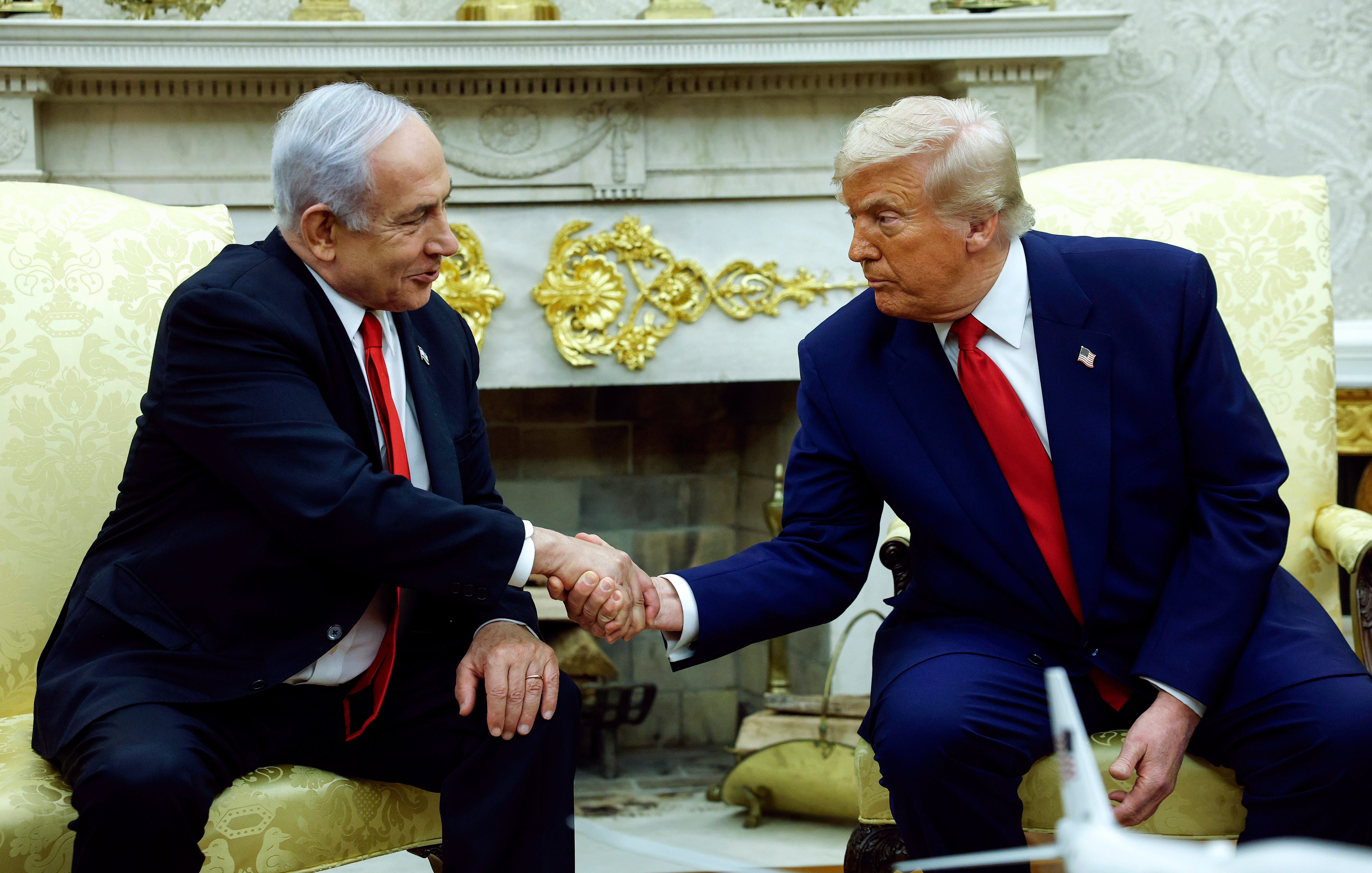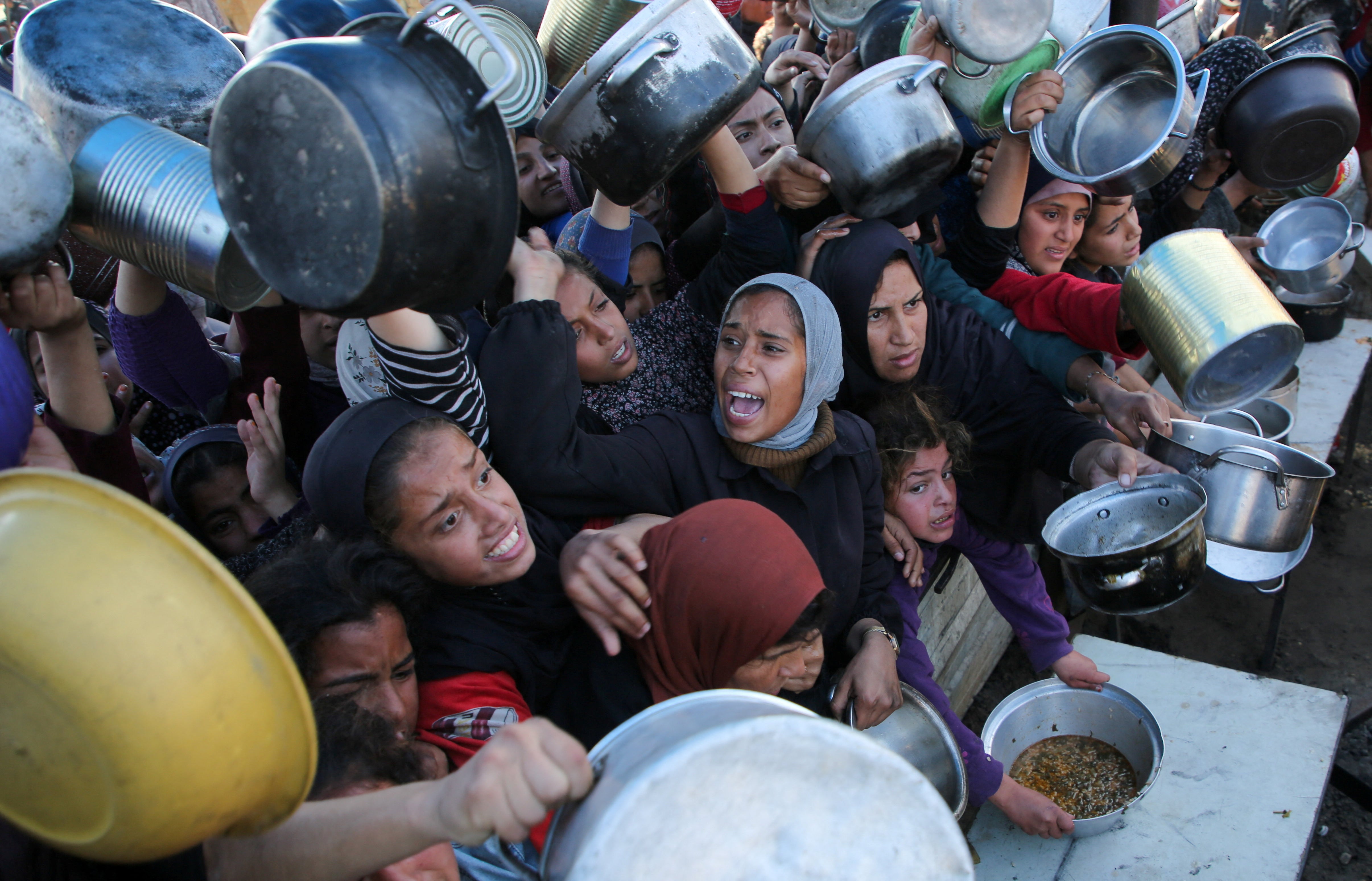Senior officials briefed on truce talks for Gaza said they were “cautiously optimistic” that a new initiative announced by Donald Trump could pave the way to a long-term ceasefire deal, and the end of the devastating 21-month war.
Trump said on Tuesday that Israel had agreed to the “necessary conditions to finalise” a 60-day truce to allow negotiations “to end the war” and urged Hamas to accept the deal before conditions worsened.
The US president has been piling pressure on both sides to broker a ceasefire and hostage release agreement, promising that a deal could come together as soon as next week.
One of the main sticking points has been whether the agreement would lay the groundwork for ending the ruinous war permanently. Israel has said it won’t accept a deal until Hamas is defeated, while Hamas has said it would never agree to temporary truce terms.
Despite this, senior officials briefed on the talks between Netanyahu’s senior aide Ron Dermer and Trump’s special envoy, Steve Witkoff, described a mood of “cautious optimism”. That is because among points approved by the Israeli side was that a ceasefire deal would contain US and mediator guarantees that discussions to end the war completely would take place.
The Independent understands the current 60-day structure on the table would lead to the release of 10 living captives and 15 bodies of those killed in Gaza. In exchange, there would be a partial withdrawal of Israeli forces from parts of Gaza, more aid would be allowed in, and talks would begin for a permanent ceasefire.
Progress has already begun. A Hamas delegation is expected to meet Egyptian and Qatari mediators in Cairo on Wednesday to discuss the proposal.
One official, who requested anonymity as they are not authorised to speak to the media, told The Independent this round of talks felt “different”, particularly after Israel’s unprecedented bombing campaign in Iran crippled Iran’s military leadership and caused “extensive” damage to Iranian nuclear infrastructure. Iran is one of Hamas’s closest allies.
“There is great American pressure on Israel to reach a deal,” the official told The Independent. “There is more flexibility from the Israeli side – I can say there is cautious optimism.”

“There is a different kind of atmosphere altogether after Iran. Netanyahu is in a mindset to go for a deal,” the official added, saying that off the back of the Gaza deal Netanyahu expects more Middle Eastern states would join the United Arab Emirates and Bahrain in signing the Abraham Accords, a diplomatic and trade deal normalising relations with Israel.
Another official briefed on negotiations in Qatar called the talks in Washington “very fruitful” and said the US guarantees on a longer-term solution to the conflict – even beyond a permanent ceasefire – may assuage Hamas’s fears.
Throughout the nearly 21-month-long war, ceasefire talks between Israel and Hamas have repeatedly faltered over whether the war should end as part of any deal. Hamas has said it is willing to free the remaining 50 hostages, less than half of whom are believed to be alive, in exchange for a complete Israeli withdrawal from Gaza and an end to the war. Israel says it will only agree to end the war if Hamas surrenders, disarms and exiles itself, something the group refuses to do.
An Israeli official, again not authorised to speak to the media, said Israel agreed to a “framework that is the basis to start proximity talks”. Proximity talks mean negotiations where Hamas and Israeli officials are in the same location but not in the same room, with mediators bouncing between the parties to hammer out the details.

Mediators involved in the previous ceasefire agreement in January described how, in the final stages of talks in Doha, the Qatari prime minister himself shuttled in a lift between different floors of the same building, conveying the final frantic messages between rival factions.
As well as the hostage release, Israel would also agree to withdraw from certain areas of Gaza during that time and for a surge in humanitarian aid. The Independent understands this will not include the strategic Philadelphi Corridor, a ribbon of land around nine miles long that runs along the border between Gaza and Egypt.
“In this framework, there are US and mediator assurances to Hamas – guarantees for the next phases to discuss ending the war,” the Israeli official said. Netanyahu is expected to meet his cabinet to discuss the upcoming visit to the US on Saturday, before flying to Washington DC on Sunday. He is likely to meet Trump on Monday.
Hamas has yet to publicly respond to Trump’s ceasefire proposal. However, a senior Hamas official told The Independent that the group believed “so far the formula is not satisfactory”.
A key problem is the two-month time limit on the deal and what happens after it expires, the official explained, asking to remain anonymous.
“There are three pending issues: aid, the withdrawal of the Israeli army, and the continuation of negotiations after the 60 days,” he told The Independent. “The most important thing is to guarantee an end to the hostilities and the prevention of the continuation of fighting after the 60 days. This is what Israel rejects.”

In Gaza, civilians suffering famine-like conditions and daily, relentless bombardment tentatively welcomed the news. However, some said they did not trust the US president after many conflicting promises, and after he has continued to arm Israel and even join Israel in its bombing campaign in Iran.
“I see Trump as part of the conflict, not a mediator to stop the war or solve our problems. How can he be a guarantor of an agreement when they are participants in it? ” said Khaled Hajjaj, 36, displaced from the destroyed east of Gaza and now living in a makeshift camp along the coast. “We in Gaza are living the harsh, devastating reality. We don’t just watch events – we have lived them for two years. There have been a lot of negotiations that have taken place – dozens of times – without success. I see this time as just another attempt, and so I am pessimistic.”

Muhannad, 32, also displaced from the north, said that previous statements from Trump “have made us distrust him”.
“Two months ago, Trump promised that there would be good news for Gaza within days. The exact opposite has happened: more massacres, hunger, a blockade and the ongoing escalation,” he added.
Samira Abdel-Aziz, 48, also displaced from the north, said he hoped it was “not just idle statements”.
“I have hope for that after the announcement of the participation of the Egyptian and Qatari sides. I trust the Egyptian side regarding the Palestinian issue and the extent of its concern for Palestinian interests.”
The war began on October 7, 2023, when Hamas-led militants attacked southern Israel, killing nearly 1,200 people and taking roughly 250 hostages.
Israel’s unprecedented bombardment of the tiny strip has killed more than 56,000 people according to Gaza’s health ministry and a blockade on aid has pushed the entire 2.3 million population to the edge of famine.
More than 90 per cent of the population has been displaced, often multiple times.







